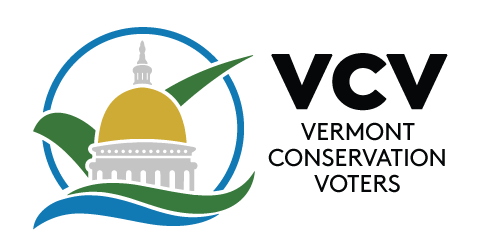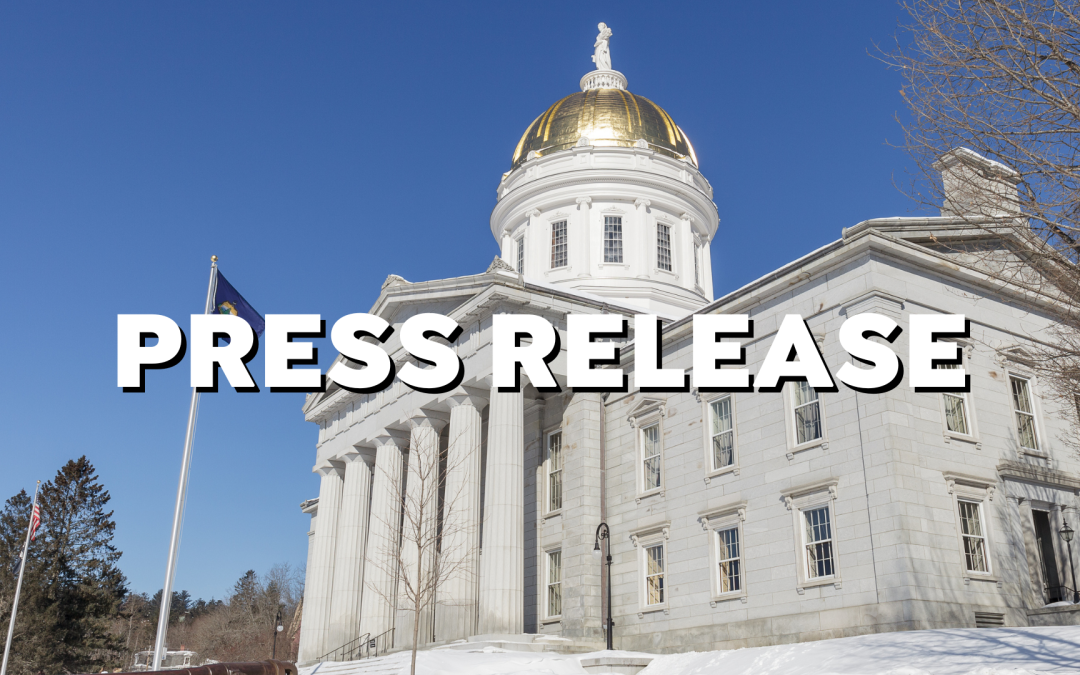Vermont Conservation Voters (VCV) has released the 2025 Environmental Common Agenda, which lays out this year’s top legislative priorities for the Vermont environmental community. VCV releases the Common Agenda every January when the legislature convenes in partnership with other environmental advocacy organizations from across the state. This year, 19 organizations participated in the process of developing and setting the agenda.
Last legislative session, Vermont lawmakers passed significant environmental policies aimed at protecting climate, communities, and natural resources, including holding Big Oil accountable, enhancing flood safety, achieving 100% renewable energy by 2035, modernizing housing development through Act 250, and strengthening protections against harmful chemicals like PFAS and neonicotinoids. These measures will help build healthier, more affordable, and resilient communities, but challenges remain, especially with the Trump administration’s plans to roll back federal environmental protections. This year’s Environmental Common Agenda focuses on implementing these policies and ensuring the state remains a model for clean air, water, and land, alongside vibrant, connected communities and an accessible, transparent democracy.
“As we enter a new legislative session the environmental community in Vermont is once again united in calling for science-based policies that move the state forward for the good of Vermonter’s health, economy and quality of life,” stated Dan Fingas, Executive Director of Vermont Conservation Voters. “This agenda is a well thought-out approach that balances prioritizing and protecting our natural resources while also meeting the biggest challenges the state faces today.”
Specifically, we are calling on Vermont lawmakers to:
- Watchdog and invest in successful implementation of the historic climate and environmental laws passed in recent years, and oppose any efforts to weaken environmental protections.
- Build climate resilience by better protecting our lands and waters, better regulating farm pollution and chloride, and better protecting our biodiversity and endangered species.
- Invest in affordable housing that is centered on smart growth principles.
- Cut climate pollution and ensure an accessible, affordable transition to clean energy:
- Fund Vermont’s electric vehicle incentives and public transit programs.
- Identify a regulatory approach that helps all Vermonters transition to clean heating systems.
- Make solar energy more accessible for Vermonters.
- Foster healthy communities and safeguard our democracy:
- Protect public health by reducing people’s exposure to toxic PFAS chemicals and reduce plastic pollution.
- Advance policies and programs that support our local farms and ensure all Vermonters are food secure.
- Safeguard Vermont’s democracy by passing a state Voting Rights Act, ranked choice voting, and banning corporate contributions.
Justin Marsh, Political Director of Vermont Conservation Voters, added, “As we face federal rollbacks, Vermont’s environmental community is committed to working alongside lawmakers to ensure our state remains a leader in sustainability, where our shared values of clean air, water, and strong communities can thrive.”
Lawmakers and advocates convened this week to walk through the agenda and discuss the top priority environmental issues. A press conference was held earlier today in the Vermont State House. This evening a reception will be held at Upstairs at Hugo’s, 44 Main St in Montpelier at 4:30pm.
The 2025 Environmental Common Agenda can be found here.
The Environmental Common Agenda is a project of Vermont Conservation Voters, with participation from the following partner organizations: Audubon Vermont, Connecticut River Conservancy (CRC), Conservation Law Foundation (CLF), Lake Champlain Committee (LCC), Preservation Trust of Vermont, Renewable Energy Vermont (REV), Rights & Democracy (RAD), Third Act Vermont, 350VT, The Trust for Public Land (TPL), Vermont Businesses for Social Responsibility (VBSR), Vermont Chapter of the Sierra Club, The Vermont Climate & Health Alliance, Vermont Community Thermal Networks, Vermont Conservation Voters (VCV), Vermont Council of Trout Unlimited, Vermont Interfaith Power & Light (VTIPL), Vermont Natural Resources Council (VNRC), Vermont Public Interest Research Group (VPIRG)

